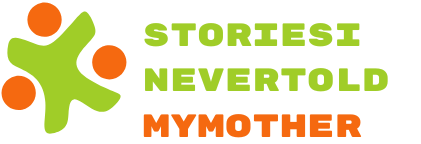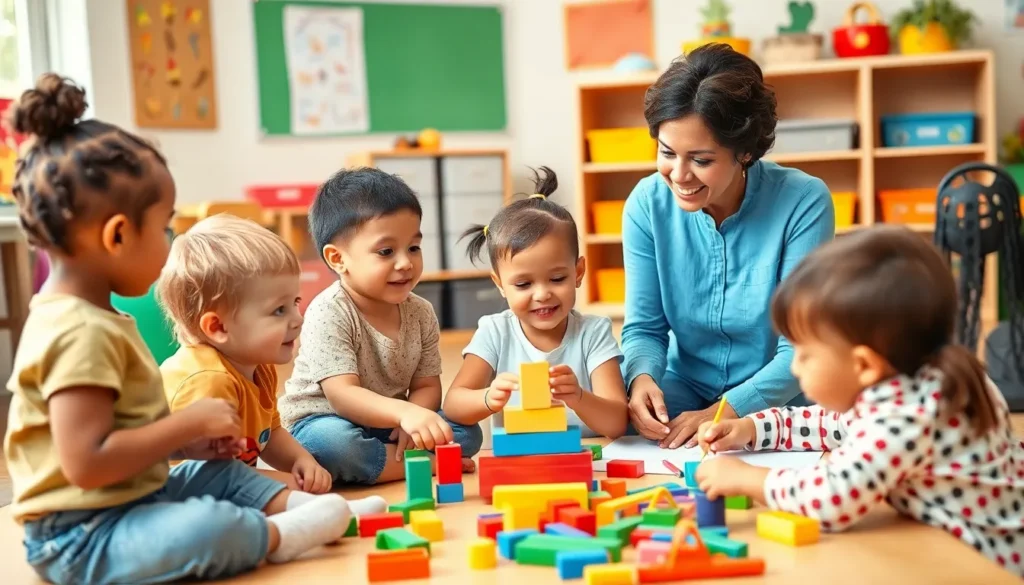Table of Contents
TogglePreschool assessments play a crucial role in early childhood education, helping educators gauge children’s developmental progress and readiness for future learning. These assessments provide valuable insights into a child’s strengths and areas needing support, creating a tailored approach to their education.
As early learners embark on their educational journey, understanding their unique needs becomes essential. Effective preschool assessments not only inform teaching strategies but also foster a nurturing environment where children can thrive. By recognizing the importance of these evaluations, parents and educators can work together to ensure every child reaches their full potential.
Understanding Preschool Assessments
Preschool assessments evaluate children’s developmental progress, ensuring they are ready for future learning. These assessments serve critical educational purposes, offering insights into each child’s unique strengths and challenges.
Definition and Purpose
Preschool assessments involve systematic observations and evaluations of children’s skills, knowledge, and behaviors. The primary purpose includes identifying developmental milestones, monitoring progress, and informing instruction. Assessments guide educators in tailoring learning experiences to suit individual needs, fostering a supportive environment for every child.
Types of Assessments
Preschool assessments can be categorized into various types:
- Formative assessments: Ongoing evaluations during classroom activities. They help teachers adjust instruction based on real-time data.
- Summative assessments: Comprehensive evaluations conducted at the end of a learning period. They measure overall mastery of skills and concepts.
- Diagnostic assessments: Used to identify specific learning needs or challenges. They provide detailed information before instruction begins.
- Standardized assessments: Structured tests administered uniformly across children. They compare performance against national benchmarks.
- Developmental screenings: Brief assessments designed to detect potential developmental delays. They offer early intervention options when necessary.
Each type plays a crucial role in creating a complete picture of a child’s readiness for learning.
Importance of Preschool Assessments

Preschool assessments serve as vital tools for understanding children’s development and readiness for future education. These evaluations facilitate tailored educational experiences that cater to individual needs.
Developmental Insights
Developmental insights gained from preschool assessments highlight a child’s growth in various areas, including cognitive, social, emotional, and physical development. Through systematic observations and evaluations, educators identify strengths such as problem-solving skills in cognitive areas or social interactions during group activities. Additionally, assessments reveal areas that require further support, enabling targeted strategies to enhance learning and development. By utilizing these insights, educators align instructional practices with each child’s unique learning trajectory.
School Readiness Indicators
School readiness indicators from preschool assessments provide essential information regarding a child’s preparedness for the transition to formal education. Key indicators include language development, literacy skills, numeracy skills, and self-regulation capabilities. For instance, proficiency in basic vocabulary and early math concepts signifies readiness for kindergarten challenges. Furthermore, social skills like sharing and following directions represent critical components of a successful school experience. By focusing on these indicators, educators and parents can effectively support children in achieving a seamless transition into school life, promoting ongoing academic success.
Methods of Conducting Preschool Assessments
Various methods exist for conducting preschool assessments, each suited to gather different types of information about a child’s developmental progress. These methods help educators personalize learning experiences based on individual needs.
Observational Techniques
Observational techniques involve watching children in natural settings to assess their skills and behaviors. Educators document children’s interactions, play, and participation during daily activities. These observations help identify social, emotional, and cognitive skills in a spontaneous environment. For effective observations, educators use checklists, anecdotal records, or video recordings. These tools allow for the systematic collection of data, providing insights into a child’s growth and learning processes. Regularly observing children supports ongoing assessment and helps track developmental milestones over time.
Standardized Testing
Standardized testing provides a structured assessment method, often using specific instruments to evaluate children’s skills and knowledge compared to a normative sample. These tests measure various areas, including language, literacy, and math. Results typically offer scores that indicate a child’s performance relative to peers. While standardized tests can highlight strengths and challenges, they often focus on specific skills rather than holistic development. It’s essential to interpret results alongside other assessment methods to gain a comprehensive understanding of each child’s abilities and readiness for the next educational stage.
Challenges in Preschool Assessments
Preschool assessments present a variety of challenges that can impact their effectiveness. Understanding these obstacles helps educators and parents navigate the complexities of evaluating young children’s developmental progress.
Cultural Sensitivity
Cultural sensitivity stands out as a critical challenge in preschool assessments. Assessments may not accurately reflect children’s abilities if they don’t consider cultural backgrounds and experiences. Different cultures may prioritize varying skills and values, leading to misinterpretations of a child’s performance. Educators must recognize these cultural influences and ensure assessments are inclusive and representative of diverse backgrounds. This approach fosters a more equitable evaluation process, enhancing understanding of each child’s unique context.
Accuracy and Reliability
Accuracy and reliability are vital for effective preschool assessments. Inconsistent assessment tools and methods may yield unreliable results, hindering educators’ insights into children’s development. Assessors must select validated tools that demonstrate reliability across varied populations and settings. Furthermore, ongoing training for educators ensures they apply assessments consistently and interpret results accurately. Maintaining high standards for accuracy supports informed decision-making in instructional strategies and ultimately promotes children’s learning outcomes.
Preschool assessments serve as essential tools in understanding and supporting children’s developmental journeys. By focusing on individual strengths and areas for growth, educators can tailor their approaches to meet each child’s unique needs. This personalized strategy not only fosters a nurturing learning environment but also enhances children’s readiness for future educational challenges.
Collaboration between parents and educators is key in this process. Together, they can create a supportive framework that encourages children to thrive. As preschool assessments continue to evolve, their role in shaping early childhood education will remain pivotal, ensuring that every child has the opportunity to reach their full potential.




